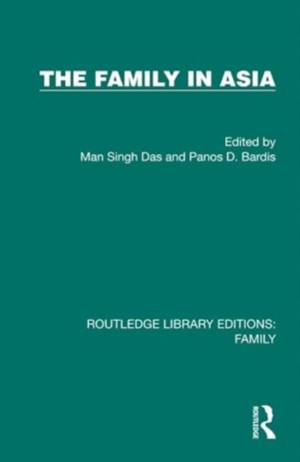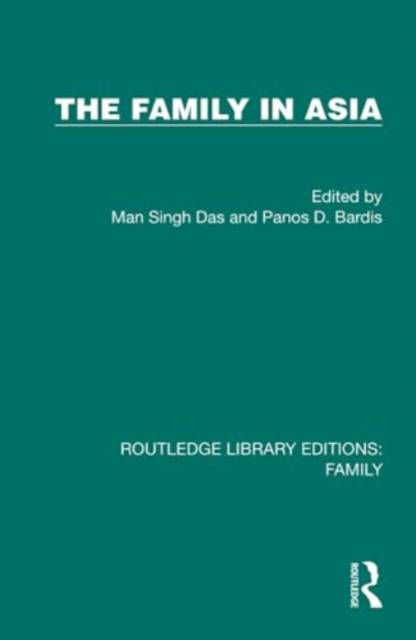
- Afhalen na 1 uur in een winkel met voorraad
- Gratis thuislevering in België vanaf € 30
- Ruim aanbod met 7 miljoen producten
- Afhalen na 1 uur in een winkel met voorraad
- Gratis thuislevering in België vanaf € 30
- Ruim aanbod met 7 miljoen producten
Omschrijving
The institution of the family is by far the most important of all the societal networks in which the lives of men, women and children are involved. Nowhere is this more true than in the less developed countries of Asia.
Originally published in 1979, The Family in Asia aimed to provide a series of comprehensive survey chapters which described traditional family patterns in a selection of Asian countries at different stages of economic development. These range from a rapidly expanding and highly developed industrial nation, Japan, through modernising and developing countries, India, Pakistan, Iran, China, South Korea and the Philippines, to more underdeveloped countries, such as Thailand and Afghanistan. Each chapter is written by a senior country specialist and covers an integrated series of topics within a uniform framework in order to facilitate inter-country comparisons.
Valuable description and statistical material is provided on the literature and on the effects of industrialisation, urbanisation and modernisation, but perhaps more important is a theoretical framework and the editors' review of some basic characteristics of social modernisation. These include the degree of equalitarian family relations and sexual divisions in society; emphasis on individualism and independence; the differentiation and specialised functioning of social institutions; urban life; birth control and family planning; social mobility; marital disruption and divorce; neglect and care of the elderly; formal education for children; and government intervention and influence on family activities.
Read in its historical context, this title will interest specialists in development and Asian studies, in demography, sociology and in anthropology. Students in particular, will value the tight analytical framework in which the book has been written.
Specificaties
Betrokkenen
- Uitgeverij:
Inhoud
- Aantal bladzijden:
- 432
- Taal:
- Engels
- Reeks:
Eigenschappen
- Productcode (EAN):
- 9781032539447
- Verschijningsdatum:
- 9/08/2023
- Uitvoering:
- Hardcover
- Formaat:
- Genaaid
- Afmetingen:
- 140 mm x 216 mm
- Gewicht:
- 666 g

Alleen bij Standaard Boekhandel
Beoordelingen
We publiceren alleen reviews die voldoen aan de voorwaarden voor reviews. Bekijk onze voorwaarden voor reviews.










